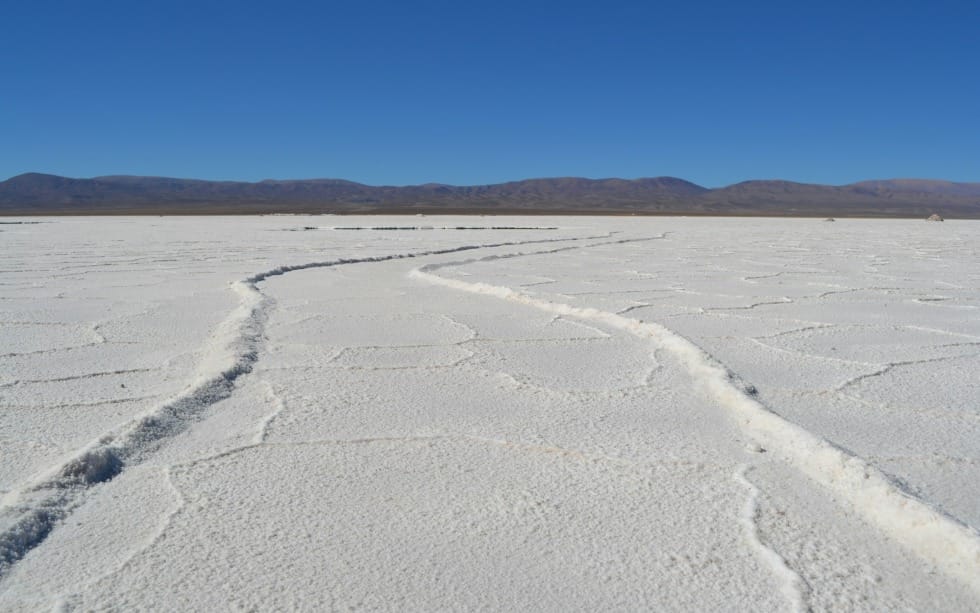How to Be Salt and Light in a Broken World
Do you feel the brokenness of this world? It’s all around us. Directly after giving the list of beatitudes, we read in Matthew 5:1-12 that Jesus shifts the conversation and addresses how kingdom living is much different than just keeping a set of laws.

Matthew 5:13-48; Luke 6:24-36
Today's Scripture Passage
A Few Thoughts to Consider
Do you feel the brokenness of this world?
It’s all around us. Directly after giving the list of beatitudes, we read in Matthew 5:1-12 that Jesus shifts the conversation and addresses how kingdom living is much different than just keeping a set of laws. It involves the intentions of the heart. It’s not just about not committing murder; it’s about confronting the desire to be angry with others in our hearts. It’s not just about not committing adultery; it’s about having a heart that does not want to. It’s not about just living with our enemies; it’s about loving those we are inclined to despise. Instead, we are to be salt and light. Jesus says in Matthew 5:13-16:
13 “You are the salt of the earth. But if the salt should lose its taste, how can it be made salty? It’s no longer good for anything but to be thrown out and trampled under people’s feet. 14 “You are the light of the world. A city situated on a hill cannot be hidden. 15 No one lights a lamp and puts it under a basket, but rather on a lampstand, and it gives light for all who are in the house. 16 In the same way, let your light shine before others, so that they may see your good works and give glory to your Father in heaven.
Keep in mind these words follow the list of beatitudes. So it’s the people who are meek, pure in heart, peacemakers, and so forth who are the true salt and light. Scot McKnight notes that “Both salt and light are images for impact on something else: salt impacts, for instance, meats, while light impacts darkness.”[1] McKnight continues by stating, “Salt flavored things (Job 6:6), and seasoning is found in the parallel at both Mark 9:50 and Luke 14:34, and it was a preservative. Salt was a necessity of life.”[2]
Jesus uses these examples with intention. To be salt is to be an extension of God’s activity in this world. As Dietrich Bonhoeffer said, “When Jesus calls his disciples ‘the salt,’ instead of himself, this transfers his efficacy on earth to them. He brings them into his work.”[3] This revolutionizes how we see God and treat others. This kingdom invitation is directly tied to who Jesus is. In verses 17-20, Jesus shows that he is the fulfillment of the Law and the Prophets. McKnight says, “He is claiming that he fulfills—in a salvation-historical, theological, and moral manner—what the Torah and the Prophets anticipated and predicted and preliminarily taught.”[4]
This is an astonishing statement, albeit a necessary one, because it connects the activity we are expected to do with the person Jesus is. Because Jesus was God, we are to be the salt and light that point others to this reality. We are to live as his followers would live.
A Meditation to PRAY
Praise | Lord, I praise you for calling us to be salt and light in this broken world, reflecting your love and truth. Thank you for the teachings of Jesus that reveal the depth of kingdom living, going beyond mere actions to the intentions of the heart. I praise you for fulfilling the Law and the Prophets, embodying the perfect standard of love and righteousness.
Release | I release my inclination to hold grudges and harbor anger, surrendering my desire for retaliation against those who hurt me. Help me let go of judgmental attitudes and self-righteousness, embracing your call to love even my enemies. I release my tendency to hide my faith, choosing instead to shine your light boldly.
Ask | Lord, I ask for the grace to live as your faithful disciple, embodying the qualities of meekness, purity, and peacemaking. Give me the courage to be a positive influence, preserving goodness and illuminating the darkness around me. May my actions and words consistently point others to you, reflecting your love and grace.
Yield | I yield to your will, choosing to love my enemies and pray for those who persecute me, as you have commanded. I accept your invitation to participate in your kingdom work, being an extension of your activity on earth. Guide me to live a life that honors you and aligns with your teachings, bringing glory to your name.
A Challenge to Act Like Christ
Jesus’ upside-down kingdom is most evident in this chapter when he says in verses 43-44, 43 “You have heard that it was said, Love your neighbor and hate your enemy. 44 But I tell you, love your enemies and pray for those who persecute you.” “This passage,” McKnight says, “is the summary antithesis that brings into crystallization the essential feature of the ethic of Jesus: the centrality of love.”[5]
Because the Old Testament never commanded people to hate their enemies, this passage reveals the extent to which extra-Biblical Jewish literature influenced popular belief. D.A. Carson notes, “The Qumran covenanters explicitly commanded love for those within the community (“those whom God has elected”) and hatred for the outsider (cf. 1QS 1:4, 10; 2:4–9; 1QM 4:1–2; 15:6; 1QH 5:4), and they doubtless represent other groups with similar positions.”[6] Thus, Jesus says he has not come to abolish the law but to fulfill it. He will not fulfill Jewish custom expectations or nationalistic hopes, but he will fulfill what God had inspired the prophets to write.
To be salt and light in this broken world, you must first evaluate your life. Do you live in connection with Christ? Are your actions characterized by those Jesus calls blessed? If so, how are your relationships being transformed as a result?
*Unless you specify otherwise, comments and questions you ask may be featured in upcoming podcast episodes.
[1] Scot McKnight, Sermon on the Mount (The Story of God Bible Commentary Book 21) (Zondervan Academic), 56-57.
[2] Scot McKnight, Sermon on the Mount (The Story of God Bible Commentary Book 21) (Zondervan Academic), 57.
[3] Dietrich Bonhoeffer, Discipleship, 111-12.
[4] Scot McKnight, Sermon on the Mount (The Story of God Bible Commentary Book 21) (Zondervan Academic), 68.
[5] Scot McKnight, Sermon on the Mount (The Story of God Bible Commentary Book 21) (Zondervan Academic), 141.
[6]D. A. Carson, “Matthew,” in Matthew & Mark, vol. 9 of The Expositor’s Bible Commentary Revised Edition. eds. Tremper Longman III and David E. Garland; Accordance electronic ed. (Grand Rapids: Zondervan, 2010), 191.





